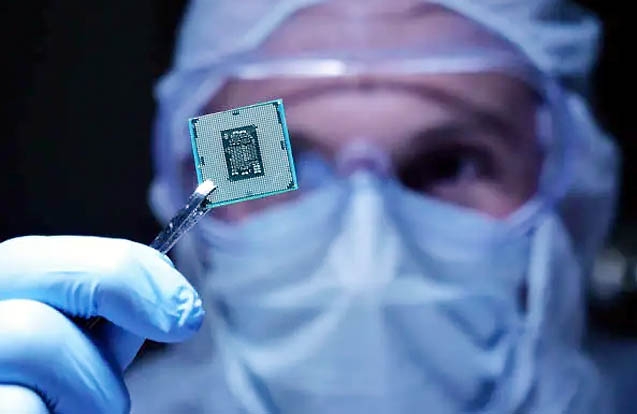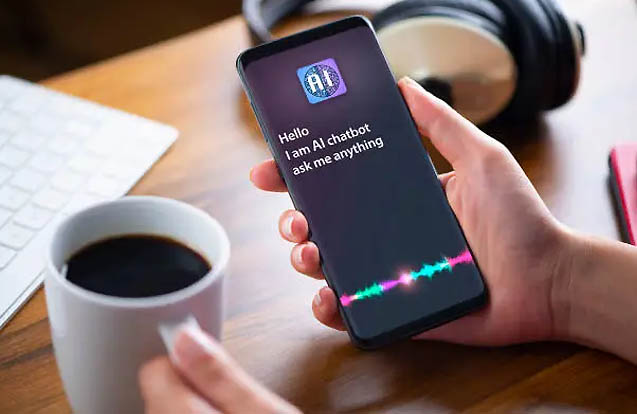
Artificial Intelligence (AI) is not just a buzzword but a groundbreaking force revolutionizing multiple facets of our daily lives. From self-driving cars and virtual assistants to advanced medical diagnostics and smart education systems, AI's impact is undeniable and far-reaching. This article delves into the transformative potential of AI across various sectors, its ethical implications, and its promising future.
AI in Everyday Life: Enhancing Convenience and Efficiency
AI is deeply embedded in everyday technologies. For instance, self-driving systems like Tesla's Autopilot are redefining transportation safety and efficiency. In homes, virtual assistants like Amazon's Alexa and Google Assistant offer personalized interactions, from controlling smart devices to providing tailored information, making our lives more convenient and connected.
Revolutionizing Business: A New Era of Data-Driven Decisions
The business sector is leveraging AI to optimize operations and customer engagement. Companies like Google and Facebook use sophisticated AI algorithms to analyze user data, enabling hyper-targeted advertising that significantly improves marketing effectiveness. Additionally, AI-powered chatbots, such as those by LivePerson, provide 24/7 customer support, enhancing service delivery and user experience.
Advancing Healthcare: Precision and Innovation
AI is a game-changer in healthcare, with applications ranging from diagnostics to surgical procedures. Technologies like IBM Watson are assisting doctors by analyzing patient data to provide more accurate diagnoses. In radiology, AI-driven platforms such as Aidoc and Zebra Medical Vision analyze medical images to detect diseases like cancer earlier and more precisely. Robotic surgical systems, like the da Vinci Surgical System, are enabling minimally invasive surgeries, resulting in quicker recoveries and better patient outcomes.
Transforming Education: Personalized Learning Experiences
Education is witnessing a paradigm shift with AI-driven adaptive learning platforms like Cognii. These systems customize instruction to individual student needs, identifying knowledge gaps and providing tailored resources. This personalized approach enhances student engagement and fosters deeper understanding, paving the way for a more effective educational experience.
Social Welfare and Beyond: Addressing Complex Challenges
AI also plays a crucial role in social welfare, where it can help detect fraudulent activities in government assistance programs, ensuring resources are allocated to those who need them most. By analyzing vast datasets, AI can identify patterns that are often missed by human oversight, improving the efficiency and fairness of social systems.
Ethical Considerations: Navigating the Challenges of AI
While the benefits of AI are vast, its rapid integration into society raises significant ethical concerns. For example, facial recognition technologies, such as those used by Clearview AI, pose serious privacy risks by enabling the tracking of individuals in public spaces. Additionally, biased AI algorithms can perpetuate discrimination, as seen in Amazon’s AI recruiting tool that favored male candidates. Addressing these issues requires robust ethical frameworks and regulatory oversight to ensure AI development aligns with societal values.
AI and Human Creativity: Collaboration or Competition?
As AI continues to evolve, its role in creative fields raises questions about the future of human creativity. AI-powered tools are capable of generating impressive works of art, music, and literature, yet their creations often lack the emotional depth and nuanced meaning derived from human experiences. In the arts, AI can produce unique designs and patterns that are difficult for humans to replicate, but critics argue that such works may lack the soulful expression inherent in human-made art. Similarly, AI-generated music can compose new pieces and create background scores, but some contend that it cannot capture the emotional resonance of music crafted by human artists.
In literature, AI systems can produce coherent and grammatically correct texts. However, these writings often lack the richness, creativity, and depth found in human-authored narratives. While AI holds potential as a collaborative tool in creative processes, concerns persist about whether it could ultimately overshadow or replace human creativity altogether.
Popular AI Applications: Enhancing User Experiences
The proliferation of AI has led to the development of innovative applications across various domains:
AI Chatbots: Platforms like Chatfuel and ManyChat enable businesses to automate customer interactions, providing personalized responses and streamlining support.
Amazon Alexa & Google Assistant: These voice-controlled assistants perform tasks ranging from setting reminders to controlling smart devices, showcasing AI's integration into daily life.
Microsoft SwiftKey: This AI-powered keyboard learns from users’ typing habits to offer personalized suggestions, enhancing typing efficiency.
FaceApp: Demonstrating AI’s entertainment potential, FaceApp uses deep learning to transform images, offering features like age transformations and gender swaps.
Replika: An AI chatbot designed for emotional support, Replika provides a space for users to engage in meaningful conversations, highlighting AI's potential in mental health support.
AI's Impact on Society: Opportunities and Concerns
AI's influence on society is profound, particularly in job automation, education, and healthcare. While it opens new opportunities for innovation and efficiency, it also raises concerns about job displacement and economic inequality. It is essential for educational systems and policy frameworks to adapt, providing training and resources to help workers transition to new roles in an AI-driven economy.
AI and Security: Navigating the Risks
AI systems can enhance cybersecurity by detecting threats and responding to attacks more rapidly than traditional methods. However, these systems are not immune to vulnerabilities. The risk of AI being used maliciously, such as in deepfake technology or cyber warfare, necessitates stringent security measures and international cooperation to safeguard against misuse.
The Future of AI: Collaborative Intelligence
As AI continues to evolve, its potential to complement human creativity and intelligence becomes more apparent. Rather than replacing human input, AI can augment our abilities, leading to new forms of art, music, and literature that blend human creativity with machine precision.
Conclusion: Building a Responsible AI Future
AI holds immense promise for advancing human capabilities and addressing complex challenges. However, realizing its full potential requires responsible development, ethical considerations, and thoughtful regulation. By harnessing AI's transformative power while mitigating its risks, we can create a future where AI serves as a force for good, enhancing the quality of life for all.
As we move forward, it is crucial to foster a balanced dialogue that acknowledges both the benefits and challenges of AI. Through collaborative efforts between governments, businesses, and civil society, we can shape an AI-powered world that reflects our shared values and aspirations.
#ArtificialIntelligence 🤖 #AIApplications 💡 #TechInEverydayLife 🌐 #AIBusiness 📈 #AIHealthcare 🏥 #AIChatbots 💬 #AmazonAlexa 🎙️ #GoogleAssistant 🔍 #SmartTech 💻 #AIInEducation 📚 #Innovation 🚀 #DeepLearning 🧠 #MachineLearning 📊 #TechNews 📰 #AIinArt 🎨 #AIinMusic 🎵 #FutureOfAI 🔮 #DigitalTransformation 🌟 #AIInHealthcare 👩⚕️ #AIAdvancements 🔧
Thank you for reading: globalpostheadline.com





